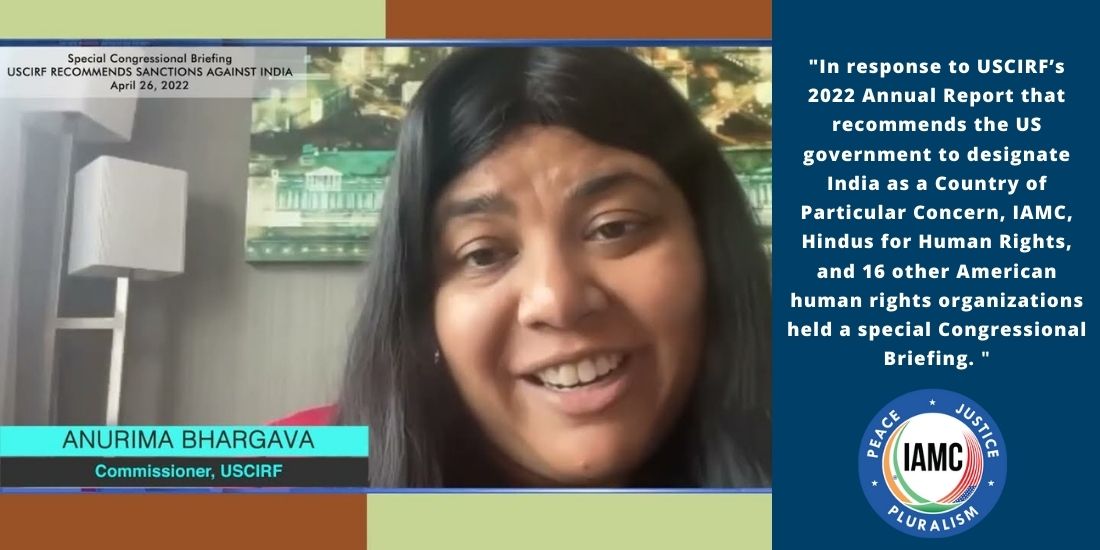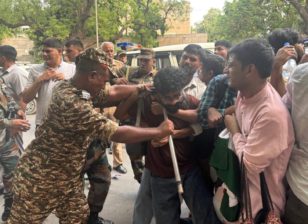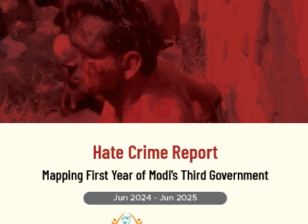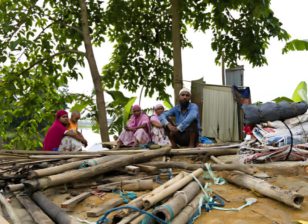For the third year in a row, we recommended that India be designated as a country of particular concern for systematic, ongoing, and egregious violations of religious freedom
In response to USCIRF’s 2022 Annual Report that recommends the US government to designate India as a Country of Particular Concern, IAMC, Hindus for Human Rights, and 16 other American human rights organizations held a special Congressional Briefing. Anurima Bhargava, Commissioner for USCIRF, addressed the briefing and explained the underlying reasons for that recommendation.
Anurima Bhargava
Commissioner, USCIRF
Apr 26, 2022
Washington, DC
I appreciate this opportunity from Indian American Muslim Council and many others to be able to speak about the report and what it is that we documented and recommended to the US government. For the third year in a row, we recommended that India be designated as a country of particular concern for systematic, ongoing, and egregious violations of religious freedom.
I want to talk about what are the underlying reasons for that recommendation, and I think we can talk about them in three different categories.
Certainly one of the first and most pressing (reasons) in 2021 is the ways in which there were laws that were used to silence critical voices.That does not only include voices of religious communities around India, but also those who are advocating for religious communities around India, and or supporting those communities. These laws have been around for a long time, but the ways that they’re being implemented right now is what we’re concerned about.
The Unlawful Activities Prevention Act and Sedition Law are ways in which there have been many who have been detained, threatened with formal complaints, and have been harassed because of the ways in which they’ve spoken out or documented violence, hate, the intimidation, and fear that is going on in religious communities. We’ve also seen the same thing happen for those who are part of those religious communities where these laws are being used to really intimidate and create a different kind of climate for those who are trying to just go about their everyday living in India right now.
One of the places that we have certainly seen an uptick would be an understatement in terms of the ways in which those laws are being used, as well as the Foreign Contributions Regulations Act which has been around for some time. There were amendments made to it last year or in 2020. But in some ways, what’s happening with FCRA is the way in which it also has been used to cut off support and funding. At the end of 2021 it included 6000 organizations.
A number of those organizations are ones that work in and support religious minority communities. There are also organizations that are themselves just trying to provide basic services and to have a situation in which their lifeline is being cut off and questioned.
We don’t know why these 6000 organizations were targeted under the FCRA. For example, human rights organizations like Oxfam and the most prominent example, Missionaries of Charity, were denied a license. After an outcry, they ended up getting that license renewed under the FCRA.
However we see how that played out, particularly during the time of covet in which people are trying to support organizations that are in communities. This includes Christian communities, Muslim communities, Sikh communities, and many others who are trying to support those communities and their ability to thrive.
The second way, which has been the focus of some of our reports in the last couple of years, is the way in which the government is not only engaging in, but determining whether or not a country is engaging in systematic, ongoing, egregious violations. The question is not only if they’re engaging in it, but if they’re tolerating those kinds of violations as well.
One of the other areas in which we’re seeing this is the move towards India being seen and this vision of an overtly Hindu state. This includes the ways in which other communities are not just being communities within India, but are being offered by the government. We see that in a couple of different ways.
We’ve seen it with the Citizenship Amendment Act and this questioning of the citizenship of those who have resided within India for decades, and the suggestion that those who are non Hindu, their citizenship is in question. That has been done in Assam and continues. One of the things that we document in our report is the ways in which those harms have reverberated for those whose citizenship and right to belong within India have been questioned. It has allowed for people to believe that those who are part of non Hindu communities somehow have open season in terms of violence or targeting of those communities.
We’re also seeing the ways in which the continued passage at the state level of anti-conversion laws may look as if they are treating everyone equally. Unfortunately the ways in which they are being used, for example in interfaith marriage, has suggested that the very idea that someone would convert to a different religion is something that should be treated as a security threat. They also believe it is something that should be seen as a target for government violence.
The proliferation of anti-conversion laws that are broad in terms of what it is that they prohibit, and the ways in which they’re creating this feeling. There is a connotation that they should be stopped from conversation, and that in doing so, they are somehow engaging in dangerous or prohibited behavior. That is another way in which there is a very different kind of environment being created within India.
The last place which is being facilitated by the laws and the way in which they’re being implemented is certainly the kind of violence that we’re seeing around India and that means the attacks on places of worship.
Part of what we’re seeing under this idea that conversion is a problem in and of itself is that there are reports in Karnataka, for example, of officials going door to door and checking whether people have converted, which is something that has come from is a tactic in a process that has been used in authoritarian regimes in the past to great danger and violence.
Again, this environment that we’re in, is creating a situation in which there is a prolific amount of violence going on around India that is targeting and focused on mob violence but also violence that is being tolerated and engaged in by officials at different levels. This violence is being perpetrated around India and particularly, again against Muslims, Christians, and other religious communities.
That violence and this idea of the ways in which heat is proliferating is again, what underlies the reason why we made the recommendation that we did. It is building differently than it has been in years past, but it’s building in ways that are certainly of concern, that is anyone who is trying to speak out about what is happening within the country, who is trying to advocate, who is trying to protect, who is trying to ensure that the communities can live freely and be safe when those communities are non Hindu communities.
The way in which that’s playing out across India, not just in some of a few states, is of grave concern to USCIRF and very much the reason why we once again had to make the recommendation that we did.




